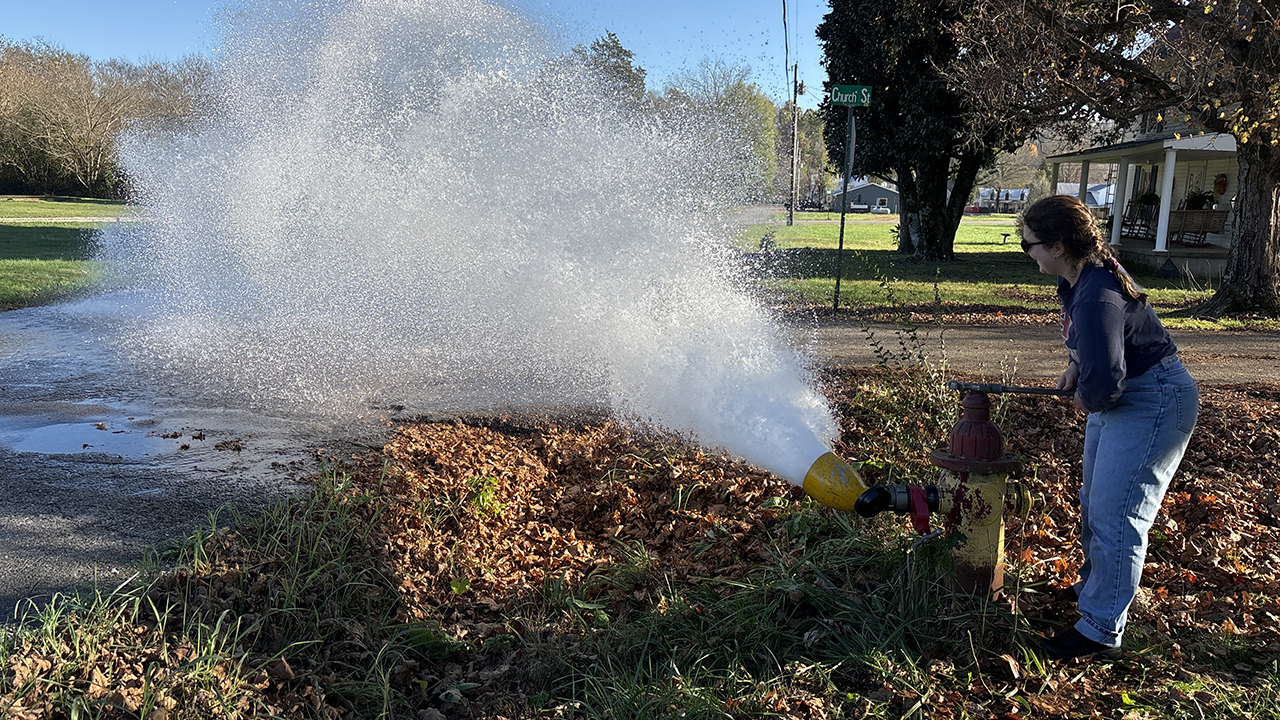Auburn Engineering students solving water issues domestically and abroad
By Joe McAdory

A community in south central Tennessee has a water crisis and Auburn engineers are digging for a solution.
The water infrastructure in unincorporated Westpoint, located roughly an hour north of Florence, was installed more than 60 years ago and has not received a full-scale update.
“The pump area at the main water tower has been abandoned and is pretty much out of commission,” said Joel Young, a junior in chemical engineering and team lead for Auburn University’s Engineers Without Borders’ domestic project. “The residents, about 250 of them, must instead receive their water from nearby Loretto — and the infrastructure in place to receive that water isn’t great either. Loretto has its own water needs. Whenever there is a water issue in Loretto, Westpoint receives no water. It’s a quantity issue.”
Bathing, washing clothes, flushing toilets, etc., are problematic without running water.
In case of a fire, hydrants in the center of the community are flushed. What happens then? Residents in the higher-elevated outskirts of town lose water.
“That encapsulates the whole issue. There just isn’t enough water to go around,” Young said.
Christian Brodbeck, an EWB faculty advisor and director of engineering research operations, said it’s difficult to envision that there are communities here in the U.S. that don’t have access to reliable, clean water.
Resolving water issues in rural Tennessee is just one of three Engineers Without Borders (EWB) projects for 2025.
This past May, a team of 10 students and advisors reviewed recently completed work in Xeo, Guatemala, and assessed a future project in the nearby Quiche Region. In August, eight students and advisors will continue efforts in Bolivia, by repairing water transmission lines and design an irrigation system.
“The work we do is incredibly rewarding, but it’s equally as rewarding to watch out students grow through the organization and do the work,” Brodbeck said. “We’ve watched students come in as freshmen and grow through the program.
“The student-engineers receive fantastic experience through EWB, gaining a better understanding of project management, designing, building, installing … all the stuff that goes into what we do. Then they get to experience the communities they are helping — seeing their hard work laid into place.”
Researchers

